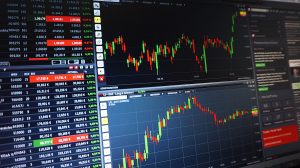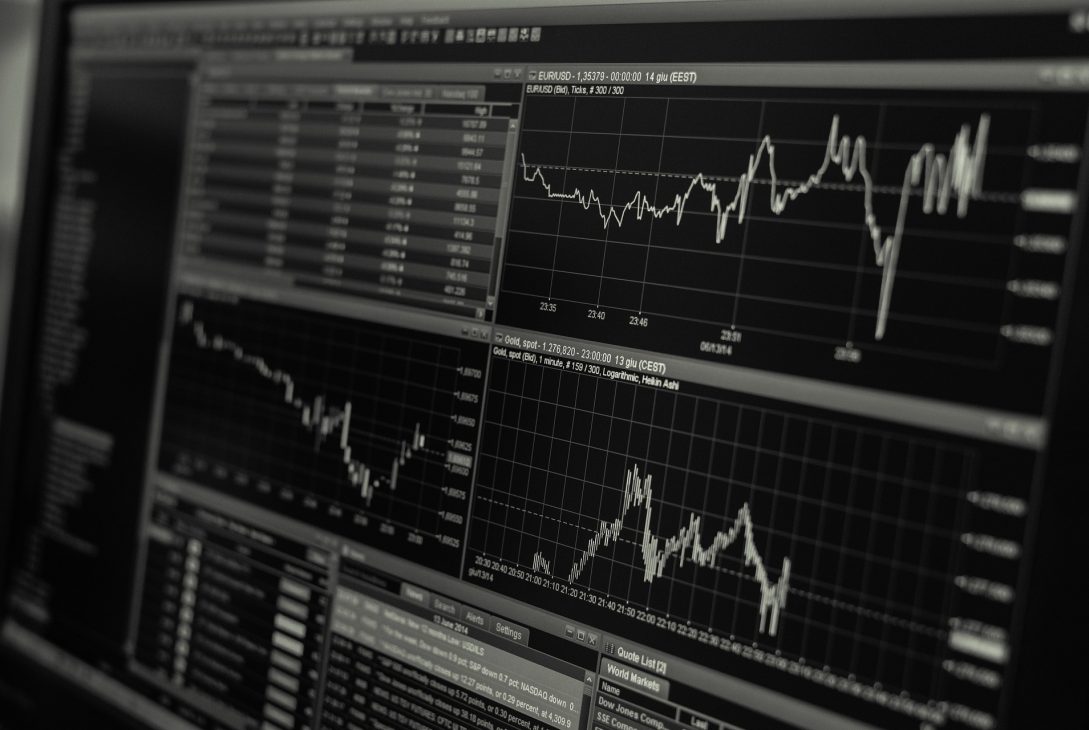Those who are interested in taking part in the financial markets have two options: investing or trading. Both of these activities may be profitable. When you become an investor, it’s probable that you’ll be putting in greater sums of money and allowing them to sit for a sufficient period of time to generate even higher returns. As a trader, on the other hand, you will only invest smaller sums, perhaps on a daily basis, and you will take advantage of each uptick and downtick in the market in order to generate profits that are less in total but more frequent.
Investing and trading are both viable options that have the potential to generate profitable returns; the decision comes down to your personal preferences regarding how much time and money you are willing to put into accumulating larger profits versus how much time and money you are willing to put into accumulating smaller profits more frequently.
Investing

Investing is done with the intention of steadily increasing one’s wealth over a period of years or even decades, most often for the purpose of retirement. Some investors seek to increase their returns by increasing the value of their original investments by compounding or reinvesting the proceeds. Daily losses are often ignored in favor of a greater concentration on long-term gain. Investing is not in any way a strategy to get wealthy overnight; rather, it is a method of steadily increasing your money over the course of a certain amount of time. The fact that you don’t need a lot of money to get started investing is a really exciting development in the world of finance.
Buying stocks is one of the most typical ways to put money into the stock market. The majority of financial professionals agree that investing in the stock market is the most effective way to increase wealth. When you buy stocks, you are really purchasing shares of a business that is already established and has a presence on the stock market. As a result, you become a shareholder in that firm. The success of it will result in a rise in the price of your shares. Therefore, it is entirely up to you to decide how long you are going to keep those shares depending on how well they perform, as well as whether or not you are going to acquire additional shares for increased returns. If you choose the appropriate investments for your money, you may transform a modest amount into life-changing wealth.
Mutual funds are another frequent kind of investment vehicle. With mutual funds, your money is combined with the money of other investors and then handled by fund managers in a professional manner. They will make investments in the fund on your behalf, which may include equities, bonds, or short-term debt. Mutual funds are a wonderful place to begin learning the ropes of investing if you’re feeling overwhelmed by the stock market. The recommendation made by The Balance is to seek a team of fund managers that are both experienced and disciplined in order to guarantee transactions go more smoothly and suffer less stress.
Trading

If the purpose of investing is to acquire an asset and keep it for the long term, then the objective of trading is to get maximum profits in the shortest amount of time. Traders often have more time on their hands, allowing them to closely follow every shift in the market. Therefore, rather than focusing on achieving, say, a 10% return on their investments at the end of the year like most investors would, their objective is to get a 15% return by the end of the day. However, you should take into account the difference in the real quantity of money that is used, since traders often work with lower quantities.
Trading with the pairings of currencies used in other countries is a common practice. According to FXCM, the foreign exchange market is comparable to the stock market in that participants may trade currencies based on their own forecasts of the value of those currencies. On the other hand, in contrast to stocks, trading up or down based on this forecast is incredibly easy to execute given the sheer size of the market. You may choose to purchase currencies that you believe will gain in value, or you can choose to sell currencies that seem to be on the verge of devaluing.
Commodities are another prominent kind of trading instrument; but, in order to trade them successfully, one needs a greater level of specialized expertise than is required for trading other popular assets. According to Forbes Advisor, the four most important types of commodities are energy, metals, agricultural products, and animals. The prices of various commodities are always fluctuating because of shifts in supply and demand in individual economies as well as the economy as a whole. When there is less of anything available, both demand and prices tend to rise, and vice versa.
Conclusion
Neither investment nor trading can be seen as superior to the other when viewed from a purely practical standpoint. Before deciding which choice is right for you, you need to thoroughly consider each one’s advantages and disadvantages in order to make an informed decision. In any case, the returns more than justify the investment; hence, you shouldn’t simply let your money sit in savings. Choosing to speed up its growth in whatever manner you can is still the most prudent course of action.



